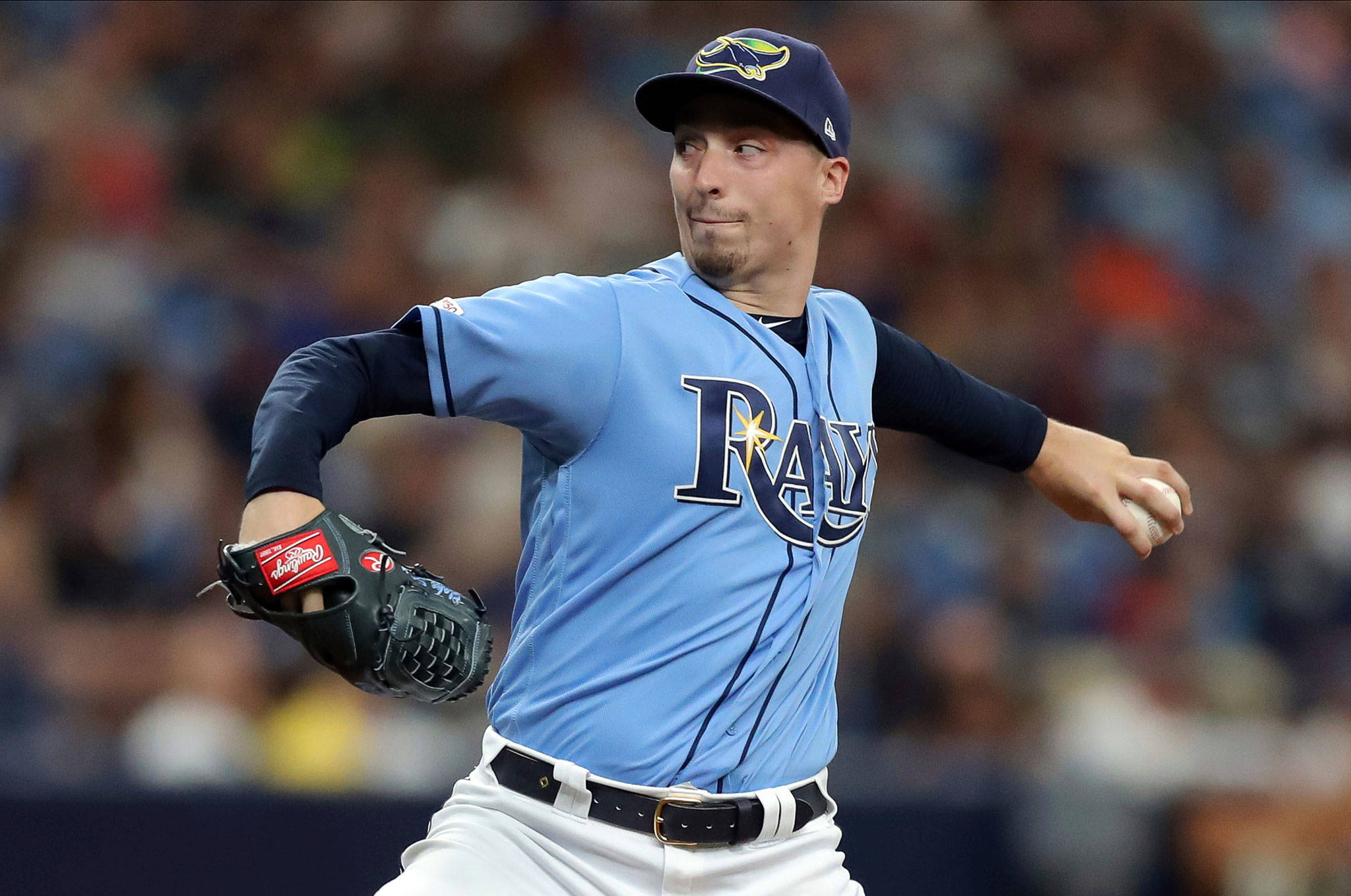By Matt Calkins / The Seattle Times
The great asset a writer possesses that a broadcaster does not is the delete key. There are countless sentences my fellow scribes and I have typed that would have drowned our reputations had we not had the ability to do an about-face.
I think Tampa Bay Rays pitcher and Shorewood High School alum Blake Snell wishes he could have a take-back after comments he made earlier this week regarding a reduced salary should Major League Baseball come back this year. Regardless of his intent, he came off far more entitled than he did insightful.
“I gotta get my money. I’m not playing unless I get mine, OK?” said Snell, who was originally set to make $7 million this year. “Y’all gotta understand, man, for me to go, for me to take a pay cut is not happening, because the risk is through the roof.”
The players already agreed to take a prorated pay cut, which means if MLB goes forward with its proposed 82-game season, Snell would make about half of his initial salary. It strikes me as odd that a guy would be willing to put himself at risk for $7 million but shudder at the idea of doing it for $3.5 million.
This comes off as particularly tone-deaf when millions of Americans are either out of work or putting themselves in harm’s way for a fraction of what Snell makes. And from the standpoint of public perception, it’s damaging for the MLB Players Association, which actually has a legitimate gripe about what owners are currently pitching.
As I mentioned, there is already an agreement in place promising to pay the players a prorated version of their original salaries. But owners are now proposing that they instead pay players 50 percent of whatever revenue the league generates during the 2020 season.
Their claim is that, with no fans in the stands, they’re set to lose billions of dollars if they carry on as planned. Only problem is, they haven’t proven how.
This is critical if they want to convince players they truly won’t have the finances to pay them what they’re owed. If they don’t, the MLBPA is justified pushing back against a 50/50 split.
It seems whenever there is a labor dispute between millionaire athletes and billionaire owners, the public tends to thrust its frustration on the players. The psychology, I believe, is that people can’t stomach the idea that salaries exceeding most people’s wildest dreams couldn’t satisfy men playing a game for a living.
But just because you’re among the most privileged in the world doesn’t mean you can’t be treated unfairly. And if the owners can’t prove how they’re going to take the monetary beating they claim is coming, the public should think twice before crucifying the players.
Ideally, the financial side of baseball’s return gets sorted out seamlessly. Prolonged labor disputes in pro sports almost always spur public resentment, but if one happened amid a pandemic causing record unemployment, that resentment could morph into pure apathy.
And even if the owners were set to take on massive losses, given those few extra zeros in their net worth, sucking it up and paying the originally agreed-upon salaries would build goodwill with the union and the public.
As for the health of the players? Of course that’s a chief concern. MLB knows that a coronavirus outbreak among players, their families or anyone else involved in the league would be disastrous in the court of public opinion.
I believe the league is going to take great steps to minimize risk. MLB Commissioner Rob Manfred has already said that repeated testing is paramount to going forward.
One thing that must be accepted, though, is that the minimization of risk is not the same as the elimination of it.
These days, there is always some kind of risk. There is risk when we go to the store. There is risk when we pick up our takeout. There is risk during the exchange with our Door Dash driver.
What MLB hopes to do is lower that risk to the point that it’s outweighed by the financial benefits it brings its players and owners — and the joy it brings fans.
If players don’t want to play because they fear for their health, I think that’s fine. If others want to sit out because they think it will strain their family life, that’s OK, too.
But what players shouldn’t do, as I suspect Snell might have been, is use this pandemic as a bargaining chip for more cash.
There are still numerous hurdles that must be cleared for MLB to return. Health, logistics and, yes, money are among the major ones.
But if financial greed somehow prevents America’s pastime from coming back into our lives, it will be a near irreversible blunder. There are a lot of complicated matters on MLB’s plate right now. Salaries should be a simple one.
Talk to us
> Give us your news tips.
> Send us a letter to the editor.
> More Herald contact information.

























